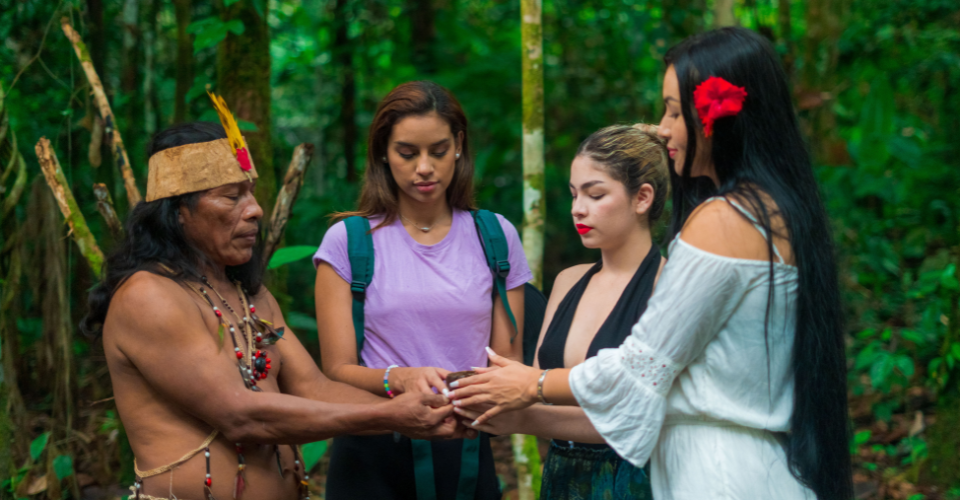Attractiveness and Misapplication of Sacred Custom
Sometimes, called psychedelic brew, hallucinogenic tea or the mood medicine, Ayahuasca is prepared from bark and leaves of a tree vine. Its reported ability to help people deal with traumas in their past has made it an important aspect of South American shamanism. Nevertheless, this spiritually enhancing magic began attracting a global audience in the last decades thereby engendering misconceptions and misapplications of this profound cultural practice.
From South America to the World
The Worldwide Appeal of Ayahuasca
At least since 900 BCE Indigenous peoples in South America—mainly Peru, Brazil, and the Upper Amazon –have been using ayahuasca as both medicine and for religious purposes. However, tales of its divine power have reached Europe and North America where they attracted top celebrities like Lindsay Lohan, athletes such as Aaron Rodgers and even businessmen like Elon Musk. Consequently ayahuasca retreats are currently located almost everywhere globally since they are attended by hundreds of thousands non-indigenous seekers after consciousness.
Indigenous Roots and Western Challenges
Consequences of Western Interest
For two-and-a-half decades now I’ve worked as a medical anthropologist investigating how culture influences human health; hence I am familiar with herbal remedies like ayahuasca. The westerner’s interest in it has brought difficulties to indigenous communities resulting many times into misunderstanding between different cultures.
Dying to Awaken
A Quest into Self-Ego
Michael Winkelman describes ayahuasca as a “psychoindicator,” which is a substance that integrates emotional processes with cognitive ones. According to Western understandings this perception destroys one’s egocentric comprehension about reality on earth. Individuals under these circumstances can go deep within themselves for healing purposes that can either lead them towards waking up or spiritual rejuvenation.
Traditional Uses
Unlocking Unseen Realms
Throughout South America, ayahuasca has been used for strategic insight and healing, shamanic journeys, divination and artistic inspiration. Made by a plant expert known as an “ayahuasca,” the tea takes eight to ten hours to brew. This is often done at night by a Curandero who calls on the spirit worlds for protection while singing Icaros or healing songs.
The Cultural Quagmire
Cultural Appropriation through Tourism
In 2018, the murder of 95-year-old curandero Olivia Arevalo brought into focus the dangers of spiritual tourism. The non-Indigenous tourists’ disrespects to local boundaries and processes have been debated after this unfortunate incident. As more non-Indigenous people use ayahuasca, however, there is a growing debate about whether or not spiritual contexts matter in these ceremonies, leading to “entheogen tourism”.
Ecosystem Impact
Moreover, many Ayahuasca lodges critics point out that they do not belong to locals causing negative ecological impacts in tourist destination sites. Over-harvesting of the Banisteriopsis caapi vines leads to an environmental strain while local economies may not benefit from such tourism revenue.
Harmonizing and Healing
Bridging Two Traditions
However critics like Mark Hay argue that Westerners need not disrespect its origins when they gain advantages from Ayahuasca. For example, mental health benefits from this plant can be integrated with western approaches towards treatment resistant depression. There are historical cases in Brazil where Indigenous rituals were merged with Christianity giving birth to new ayahuasca religions; they provide some guidance on how best to approach ayahuasca with respect for its cultural and spiritual significance.
The popularity of ayahuasca as it is growing, it must also be understood that the sacred tradition is bound to its indigenous roots. In understanding the cultural context and spirituality associated with ayahuasca, non-Indigenous practitioners can respect the plant medicine and its deep healing abilities.





























Leave a Reply
You must be logged in to post a comment.